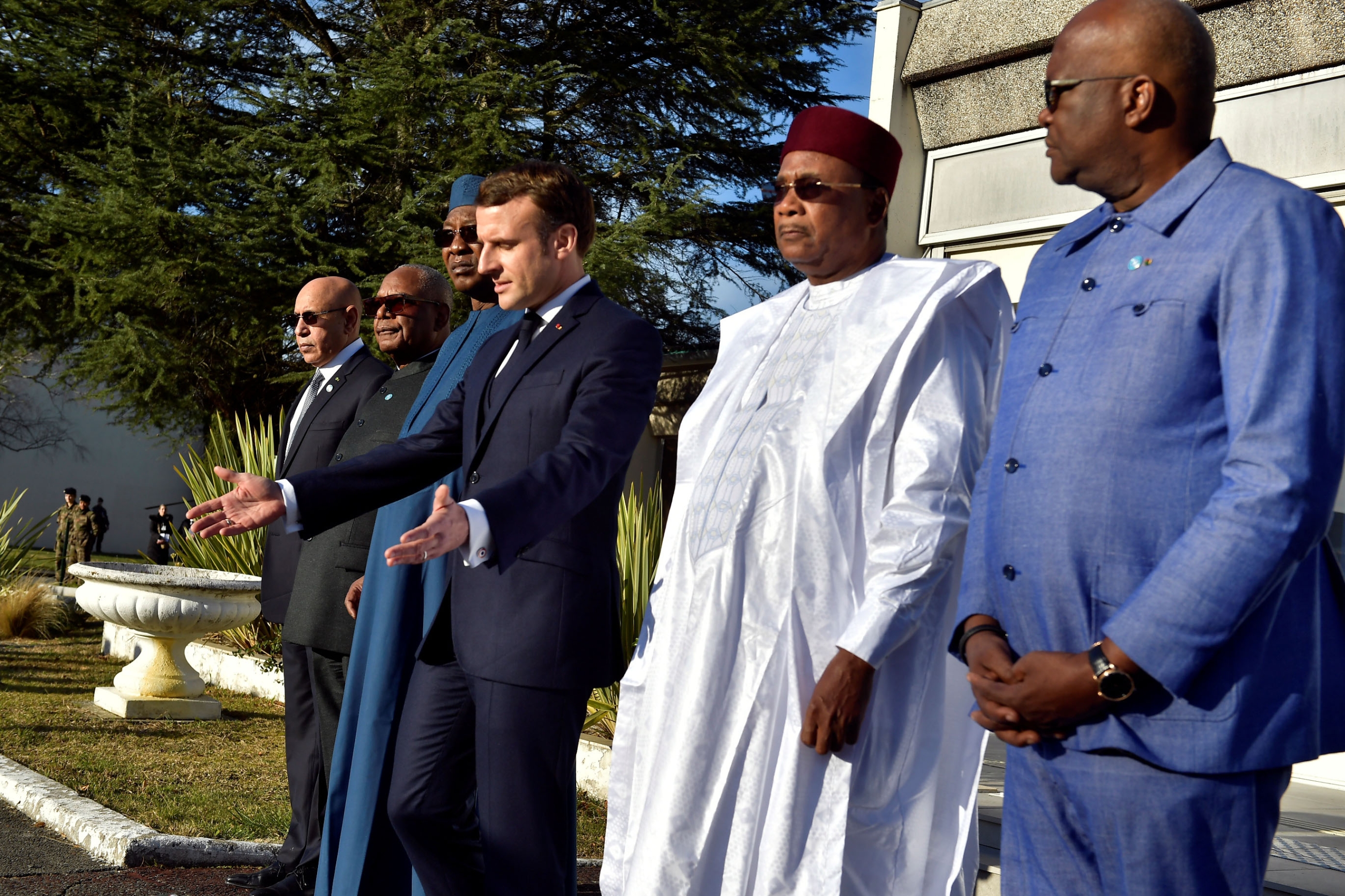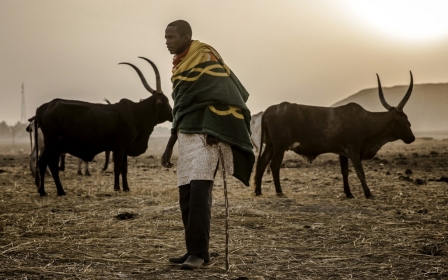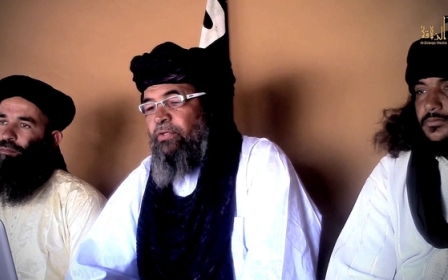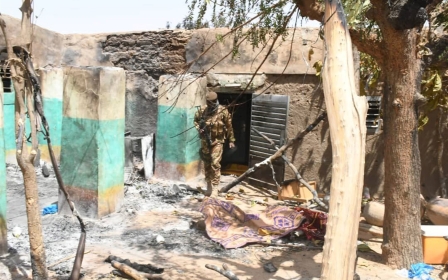France hosts G5 Sahel leaders as Macron threatens to withdraw French troops

French President Emmanuel Macron is hosting leaders from five Sahel countries - Burkina Faso, Chad, Mali, Mauritania and Niger - to discuss the presence of French troops in the region and the fight against armed groups.
Monday's meeting, perceived as a "summons" by some Sahelian presidents, comes after Macron threatened to withdraw France's 4,500 troops from the region if the countries failed to publicly express their support for French military presence.
"I can't have French troops on the ground in the Sahel when there is ambiguity [by authorities] towards anti-French movements and sometimes comments made by politicians and ministers," he said on a trip to Britain in early December.
'The atrocities and scorched earth tactics deployed by government forces especially in Mali and Burkina Faso have contributed to fastlane militant recruitment'
- Héni Nsaibia, researcher ACLED
Macron had also complained that there is no "clear political condemnation of anti-French feelings" by the G5 Sahel countries.
"I see opposition movements, groups, who denounce the French presence as a neo-colonial, imperialist," Macron said in Niger last month.
New MEE newsletter: Jerusalem Dispatch
Sign up to get the latest insights and analysis on Israel-Palestine, alongside Turkey Unpacked and other MEE newsletters
France's military presence in the region, called Operation Barkhane, was set up in 2014 and aims to support local forces in their fight against armed groups.
Rather than stabilising the region, security has progressively worsened in the West African Sahel, an arid region which lies just below the Sahara desert.
Despite France's strong presence in Mali, along with a 13,000-strong UN peacekeeping force, conflict has spilled over to neighbouring Burkina Faso and Niger.
Thousands of civilians are estimated to have been killed and more than a million people have been displaced.
According to the UN envoy for West Africa and the Sahel, attacks have increased five-fold in Burkina Faso, Mali and Niger since 2016 with more than 4,000 deaths reported in 2019 compared with an estimated 770 deaths three years before.
In Burkina Faso, deaths rose from about 80 in 2016 to more than 1,800 in 2019.
'Barkhane must leave'
On Friday, hundreds of people gathered in Mali's capital, Bamako, to protest against the presence of foreign troops. They carried posters reading: "Down with France, Barkhane must leave."
Héni Nsaibia, a researcher at the Armed Conflict Location and Event Data Project (ACLED), told Middle East Eye that it would be "difficult" for Macron to quell anti-French sentiment "as long people keep dying at this pace".
"The atrocities and scorched earth tactics deployed by government forces especially in Mali and Burkina Faso have contributed to fastlane militant recruitment".
Monday's meeting was initially scheduled for mid-December, but was delayed after an attack by an armed group left 71 Nigerian troops dead. Last week, another attack killed 89 Nigerian soldiers.
"While groups such as Jama'at Nusrat al-Islam wal-Muslimin (JNIM) and Islamic State in the Greater Sahara (ISGS) are small compared to groups such as al-Shabaab and Boko Haram, we're observing that the subregional insurgency in the Sahel is transforming and moving from being more cell/matrix-based into a mass-insurgency."
Rights groups, however, have also said that military operations are what is causing increased conflict.
"The military response in the Sahel is part of the problem," said Maureen Magee of the Norwegian Refugee Council.
"Last year, military operations in Mali pushed more than 80,000 people to flee. Engagement in the Sahel must put the protection of the populations at the heart of the response," she said.
Middle East Eye delivers independent and unrivalled coverage and analysis of the Middle East, North Africa and beyond. To learn more about republishing this content and the associated fees, please fill out this form. More about MEE can be found here.




